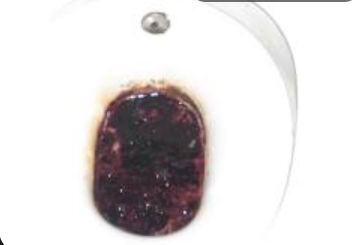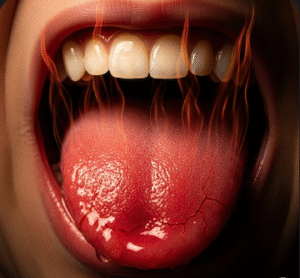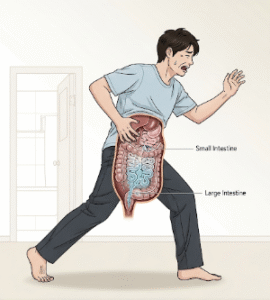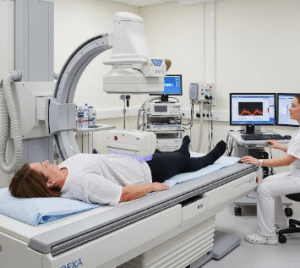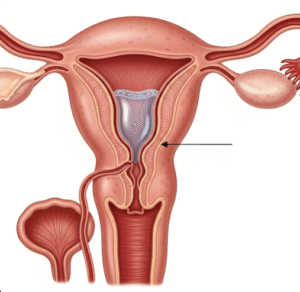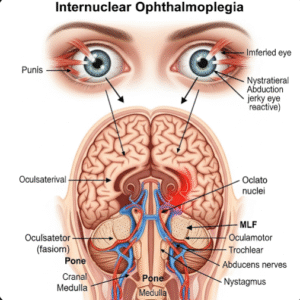Overview
Melena refers to black, tarry stools that typically result from bleeding in the upper gastrointestinal (GI) tract, such as the stomach, esophagus, or duodenum. The black color is caused by the breakdown of hemoglobin in blood by stomach acids and intestinal enzymes.
In Korea, melena is considered a serious symptom that requires urgent evaluation in advanced gastroenterology centers. With access to endoscopy, capsule endoscopy, CT scans, and laboratory tests, Korean hospitals provide rapid diagnosis and effective treatment for gastrointestinal bleeding.
Key Facts
➤ Melena = Black, tarry stool due to upper GI bleeding.
➤ Commonly linked to peptic ulcers, gastritis, varices, or GI cancers.
➤ Often accompanied by dizziness, weakness, or anemia.
➤ Requires urgent medical attention.
➤ In Korea, gastroscopy and advanced GI care are widely available.
What is Melena (Black Stool)?
Melena is the passage of dark, sticky, tar-like stool with a strong odor, usually indicating bleeding in the upper part of the digestive tract. Unlike hematochezia (fresh red blood in stool), melena results from digested blood traveling through the intestines before being passed.
Symptoms Associated with Melena
Melena itself is a symptom, but it may be accompanied by:
➔ Black, tarry, foul-smelling stools.
➔ Dizziness, fainting, or lightheadedness.
➔ Fatigue or weakness (from anemia).
➔ Abdominal pain or discomfort.
➔ Vomiting blood (hematemesis).
➔ Shortness of breath and palpitations (if severe blood loss).
Causes / Possible Causes of Melena
The main causes of melena include:
Upper GI Causes
➔ Peptic ulcers (stomach or duodenal ulcers).
➔ Gastritis or esophagitis.
➔ Esophageal or gastric varices (from liver disease).
➔ Mallory–Weiss tear (esophageal tear from severe vomiting).
➔ Stomach or esophageal cancer.
Medication-Induced
➔ Long-term NSAID use (aspirin, ibuprofen).
➔ Anticoagulants (warfarin, heparin).
Other Causes
➔ Severe liver disease or cirrhosis.
➔ Post-surgical complications in the GI tract.
When Should I See My Doctor?
You should seek immediate medical help if you notice:
➔ Black, tarry stools (especially more than once).
➔ Vomiting blood or coffee-ground-like material.
➔ Severe dizziness, fainting, or palpitations.
➔ Known history of ulcers, liver disease, or long-term NSAID/anticoagulant use.
Care and Treatment
Treatment for melena depends on the underlying cause and severity.
Emergency Care
➔ Hospitalization if bleeding is severe.
➔ IV fluids and blood transfusions (for anemia or shock).
➔ Oxygen support if needed.
Medical Treatments
➔ Proton pump inhibitors (PPIs) for ulcers.
➔ Antibiotics (if due to Helicobacter pylori infection).
➔ Endoscopic therapy (cauterization, clipping, or banding varices).
➔ Medications to reduce portal hypertension in liver disease.
Surgical / Advanced Therapies
➔ Endoscopic hemostasis for active bleeding.
➔ Surgery if bleeding cannot be controlled endoscopically.
➔ Liver transplant evaluation for end-stage liver disease with varices.
Treatment Options in Korea
Korea is known for its advanced gastroenterology and endoscopy services. Patients with melena can access rapid and effective care at top hospitals.
Diagnosis in Korea
➔ Upper GI endoscopy (gold standard).
➔ Capsule endoscopy for small intestine bleeding.
➔ CT angiography or MRI for vascular causes.
➔ Blood tests (CBC, clotting profile, liver function).
Medical Treatments in Korea
➔ Advanced endoscopic interventions (clipping, banding, cautery).
➔ IV PPIs, antibiotics, and H. pylori eradication therapy.
➔ Interventional radiology procedures to stop bleeding.
Supportive & Preventive Care
➔ Regular health check-ups including gastroscopy.
➔ Management of liver disease and portal hypertension.
➔ Patient education on safe medication use (NSAIDs, anticoagulants).

